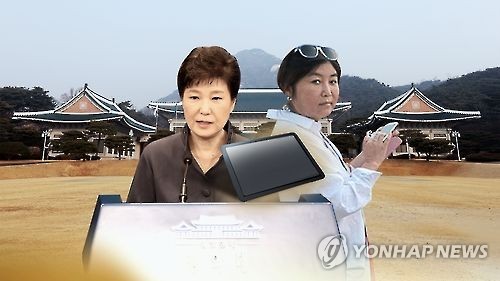Comedy or politics? No need to pick in today's TV
By Shin Hyon-heePublished : March 11, 2017 - 13:53
The political scandal of former President Park Geun-hye, rooted in her decades-long relationship with her confidante Choi Soon-sil, is one of the biggest, if not strangest, in modern Korean history. It's also too good a topic for TV networks to just pass up.
But it's one thing for network executives to order new shows that deal with the latest politics. It's another for showrunners to take the inside minutia of politics and actually make it interesting and engaging, not just for political junkies but for average viewers.

Hence there has emerged a new genre of shows -- somewhat of a crossbreed between news commentary and variety talk shows.
To be clear, it's not as if this type of programming didn't exist in the past. But this kind of show has grounded itself as one of the most relevant genres in the Korean TV industry today.
Arguably the most well-reputed show is "Sseoljeon" on cable channel JTBC. "Sseoljeon," which means "talk fighting," premiered in February 2013 and has in many ways established the genre's template.
The talk show, moderated by comedian/TV celebrity Kim Gura, pits two panels -- a conservative and a liberal -- to discuss in free form the latest politics and current issues. It's popular for the panels' blunt-yet-sharp critique into the hottest issues making news headlines, becoming the third-most-loved TV show in a Gallup Korea poll released in January.
Past panelists, such as conservative attorney Kang Yong-seok and current opposition Democratic Party's Rep. Lee Chol-hee, all made a name for themselves by appearing on the show, wooing viewers with their sharp insight, wit and endearing squabbles. Currently, Rhyu Si-min, a former health minister during the Roh Moo-hyun administration, and conservative lawyer Jun Won-tchack appear as regular panelists.
Other networks took notice of the success of "Sseoljeon" and tried to emulate it with similar formats. TV Chosun's "Kangjeokdeul," which means "powerful opponents," first aired in October 2013 with a six-member cast that has continuously changed throughout the years.
Similarly to "Sseoljeon," the show's key concept revolves around the panel debating each other as opponents. As the show isn't categorized as news programming, the panelists at times jokingly go off the rails in making unsubstantiated claims.
Channel A has also launched a current events program called "Outsiders," hosted by comedian Nam Hee-suk, and MBN also joined the bandwagon with "Pandora" in mid-February, hiring rockstar-turned-celebrity Bae Chul-soo as the main host.
And it's not just in television. On SBS TV's web-exclusive content "Shorterview," comedian Yang Se-hyung meets political bigwigs to talk about just about anything -- from policy to their favorite color -- with a comic twist from host Yang.
For these shows, it's not just fun and no substance, as often times guest politicians are put in the spotlight to answer questions on controversial issues from panels who don't tend to hide their political leanings.
Liberty Party Korea's Rep. Kim Moon-soo, for example, recently got grilled on an "Outsiders" panel while defending ex-President Park and attacking current presidential front-runner Moon Jae-in's North Korea policy.
Experts predict that the programming trend of adding a tinge of comedy and entertainment to current events is expected to grow much faster, especially given the political uncertainty caused by Park's removal.
"By and large, traditional news debate programs in Korea tend to be conservative. But in these news shows, the producers make sure that the panels are equally divided in ideology, making sure that liberal voices get heard loud and clear," Ha Jae-keun, a Seoul-based cultural commentator, said.
He also noted the TV industry has arrived at a point where news divisions within networks must come up with ways and ideas to remain relevant in the face of such growing trend, without compromising journalistic integrity. (Yonhap)








![[Graphic News] More Koreans say they plan long-distance trips this year](http://res.heraldm.com/phpwas/restmb_idxmake.php?idx=644&simg=/content/image/2024/04/17/20240417050828_0.gif&u=)
![[KH Explains] Hyundai's full hybrid edge to pay off amid slow transition to pure EVs](http://res.heraldm.com/phpwas/restmb_idxmake.php?idx=644&simg=/content/image/2024/04/18/20240418050645_0.jpg&u=20240419100350)







![[KH Explains] Hyundai's full hybrid edge to pay off amid slow transition to pure EVs](http://res.heraldm.com/phpwas/restmb_idxmake.php?idx=652&simg=/content/image/2024/04/18/20240418050645_0.jpg&u=20240419100350)

![[Today’s K-pop] Illit drops debut single remix](http://res.heraldm.com/phpwas/restmb_idxmake.php?idx=642&simg=/content/image/2024/04/19/20240419050612_0.jpg&u=)